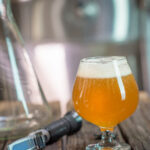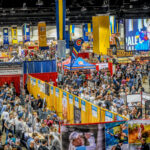Numero 30/2024
24 Luglio 2024
US craft breweries step up sustainability and the critical role of retailers in spreading the message
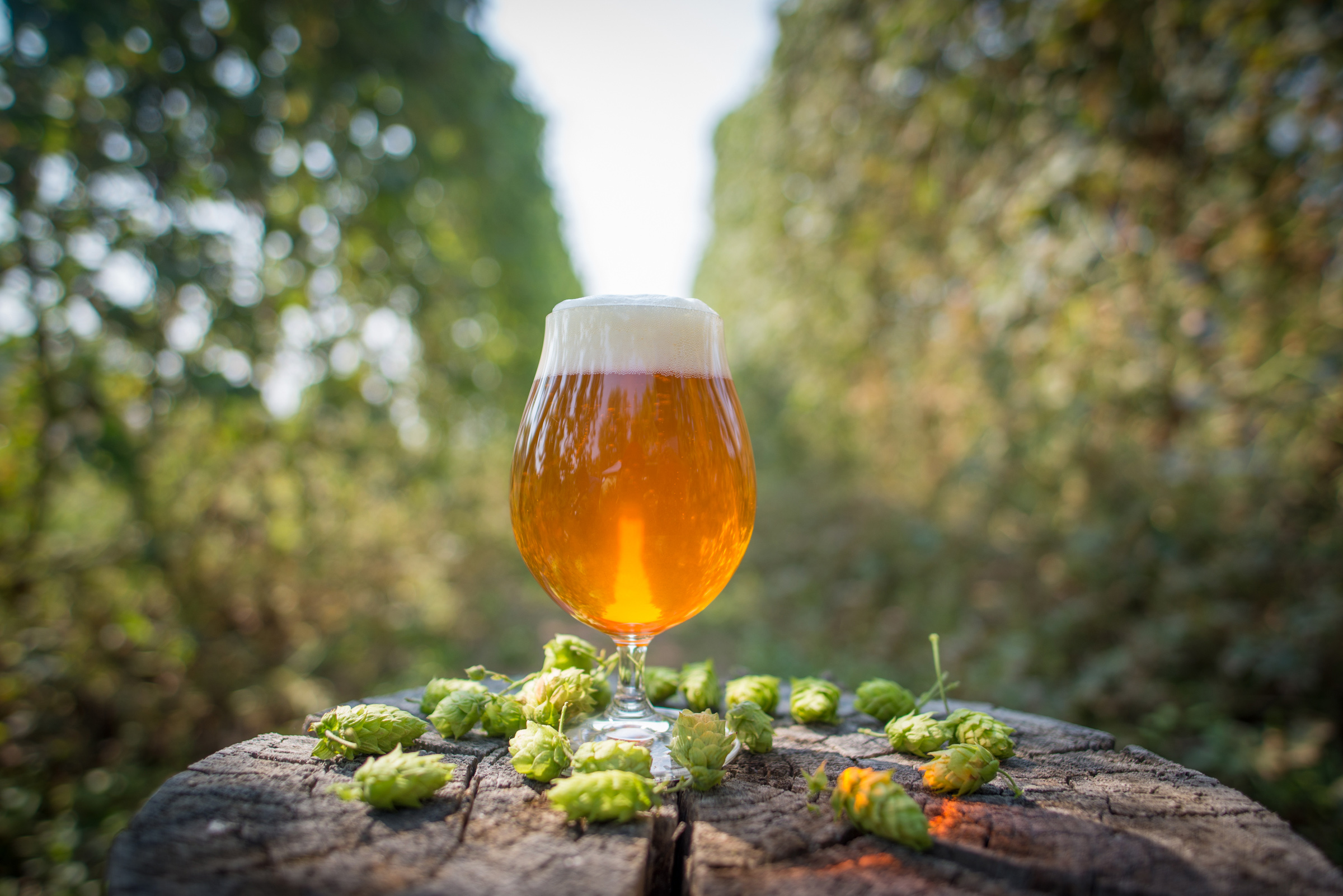
Lotte Peplow, Brewers Association’s American Craft Beer Ambassador for Europe, looks at how American craft brewers are making their industry more sustainable
Brewing beer is an energy intensive, water guzzling, waste producing industry that could, if left unchecked, significantly harm the environment and deplete the world’s natural resources faster than you could say “pass me a beer”.
Fortunately, American craft breweries, being a responsible bunch, are stepping up to protect the environment and adopt more sustainable brewing practices. Balancing sustainability with profitability is no easy feat, but many American craft breweries feel a strong moral and ethical obligation to do the right thing for future generations.
The environmental impact of brewing is highly significant – brewing typically uses about seven barrels of water for every barrel of beer and generates wastewater equivalent to what 245 people produce daily. This is especially concerning in drought-prone regions like California. Additionally, brewing requires substantial energy for heating and cooling, and produces spent grain and other waste products.
Sustainable brewing practices not only lead to cost savings and efficiencies but also generate positive brand associations and loyalty among consumers. However, how can the average beer lover determine if a brand is sustainable? Without extensive research before visiting a bar or pub, it’s almost impossible to know if a draught beer is sustainable. Packaged beer, on the other hand, can communicate sustainability information on its label more easily. Off-premise retailers focused on sustainability should be given credit for reaching a broader audience than individual breweries and effectively conveying sustainability messages at the point of purchase.
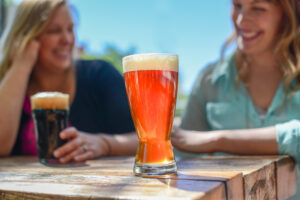
American craft breweries like Anderson Valley Brewing Co from Boonville, California recognise the vital importance of sustainability. They were was the first US craft brewery to install a solar array back in 2005 and have a self-contained water system on site. Water is drawn from their own wells and, once used for brewing, it is treated and returned to the property making the brewery its own ‘zero waste water manufacturing facility.’
They also use a nitrogen generator to replace up to 80% of carbon dioxide used during the brewing process. Nitrogen is not a greenhouse gas and does not need to be trucked in, benefiting the environment all round. And in a highly collaborative way characteristic of the brewing industry, Anderson Valley advises other breweries how to size, select and work with a nitrogen generator.
All spent grain goes to feed local cows and glass packaging is a thing of the past, now it’s all aluminium cans and cardboard. By eliminating glass the brewery was able to reduce trucking by 60% just by shifting to cans.
Kevin McGee, president of Anderson Valley, explains: “We’re family owned and view sustainability in the long term. If my daughter takes over the company in years to come I don’t want her banging her head against a wall in 15, 20 or 30 year’s time and thinking ‘Dad, why did you do that!’ We don’t see sustainability driving consumer behaviour in a big way but we do it because it’s a good idea and the right thing to do. Having said that, retailer led activity has more potential to effectively deliver the sustainability message to consumers. In-store merchandising and direct communication at the point of purchase are more effective than our brewery trying to convey information. Retailers interact directly with a broader audience of consumers than a brewery and are better positioned to give and receive messages. We hope the sustainability message will trickle down from brewer to retailer to consumer and ultimately influence their behaviour.”
A brewery like Revolution Brewing Co, from Chicago sits on the edge of Lake Michigan, the largest source of fresh water in the world and Chicago has the largest water filtration system in the world so water is clean and plentiful. Josh Deth, founder comments: “We’re tripling the solar panels on our roof to be more efficient in making beer and adding new equipment to enhance quality and sustainability and not simply to sell more beer.”
Revolution has invested in sustainability by moving from plastic six-pack rings to cardboard cartons. Cardboard has among the best recycling records of any packaging material. It’s 100% recyclable, and when recycled into new products, those products see a 70% reduction in energy use.
Cans are good for the environment because:
- They are made with recycled aluminium, which reduces greenhouse gas emissions by 95%.
- Nearly 75% of all aluminium ever produced is still in use today.
- 68% of cans are recycled—the highest rate of any beverage container.
What’s more, cans are better for preserving beer flavour and quality because they are 100% airtight and block harmful UV-rays from light, both of which can degrade a beer’s life over time.

Deschutes Brewery is based on the beautiful Deschutes River that runs through Bend, Oregon but despite being so near a natural source of water the brewery’s objective is to reduce water usage. Scott Mellinger, plant engineer at Deschutes, explains “We are constantly looking to enhance our efficiencies with water, for example through optimisation of our CIP (cleaning) process and minimising water usage to only what is strictly required. A reduction in cleaning water needs almost always correlates to a reduction in natural gas requirements for heating the cleaning water as well as a reduction in chemical needs.” A win, win for the environment then.
He adds: “Another way to reduce water usage is by trying to achieve the highest yields possible – more water/wort into fermentation vessels means less down the drain. And we cool wort (pre-beer) using water and ensure that water is exactly the right temperature so we don’t inadvertently use too much and end up sending part of it to the drain. “
American craft brewers are renowned for their ground-breaking creativity, relentless innovation and unswerving commitment to quality but are also blazing the trail for sustainability and environmental stewardship to ensure future generations continue to enjoy the same high quality American craft beers as we do today.
Europe remains an important export market for American craft beer and the second largest market behind Canada. In Italy, American craft beer is available from select bars and restaurants, select supermarkets, bottle shops and on-line retailers.
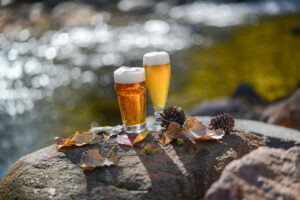
Dates for Your Diary
And, don’t miss the Great American Beer Festival in Denver, Colorado 10-12 October 2024, the largest public beer tasting in the States and dubbed by Thrillist as ‘the one beer festival to try before you die’.
The Brewers Association publishes a wealth of resources to understand and enjoy craft beer, downloadable free of charge from www.brewersassociation.org
About the author: Lotte Peplow is the American Craft Beer Ambassador for Europe for the Brewers Association and is based in London, UK. She is a Certified Cicerone®, BDI accredited Beer Sommelier, beer writer, author, speaker, beer communicator, international beer judge, homebrewer and beer lover
About the Brewers Association
The Brewers Association (BA) is the not-for-profit trade association dedicated to small and independent American brewers, their beers and the community of brewing enthusiasts. The BA represents 5,600-plus U.S. breweries. The BA’s independent craft brewer seal is a widely adopted symbol that differentiates beers by small and independent craft brewers. The BA organizes events including the World Beer Cup®, Great American Beer Festival®, Craft Brewers Conference® & BrewExpo America®, , Homebrew ConTM, National Homebrew Competition and American Craft Beer Week®. The BA publishes The New Brewer® magazine, and Brewers Publications® is the leading publisher of brewing literature in the U.S. Beer lovers are invited to learn more about the dynamic world of craft beer at CraftBeer.com® and about homebrewing via the BA’s American Homebrewers Association® and the free Brew Guru® mobile app. Follow us on Facebook, Twitter and Instagram.
Issued on behalf of the Brewers Association, 1327 Spruce Street, Boulder, Colorado, 80302 USA. www.brewersassociation.org
For further press information: Lotte Peplow: lotte@brewersassociation.org +44 (0)7973 698 414




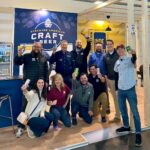
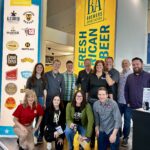
![America craft beer goes for gold - and gets it - at international beer competitions Brussels Beer Challenge 2023 © Bart Van der Perre – highres-1873[180812]](https://www.giornaledellabirra.it/wp-content/uploads/2023/12/Brussels-Beer-Challenge-2023-©-Bart-Van-der-Perre-highres-1873180812-150x150.jpg)
